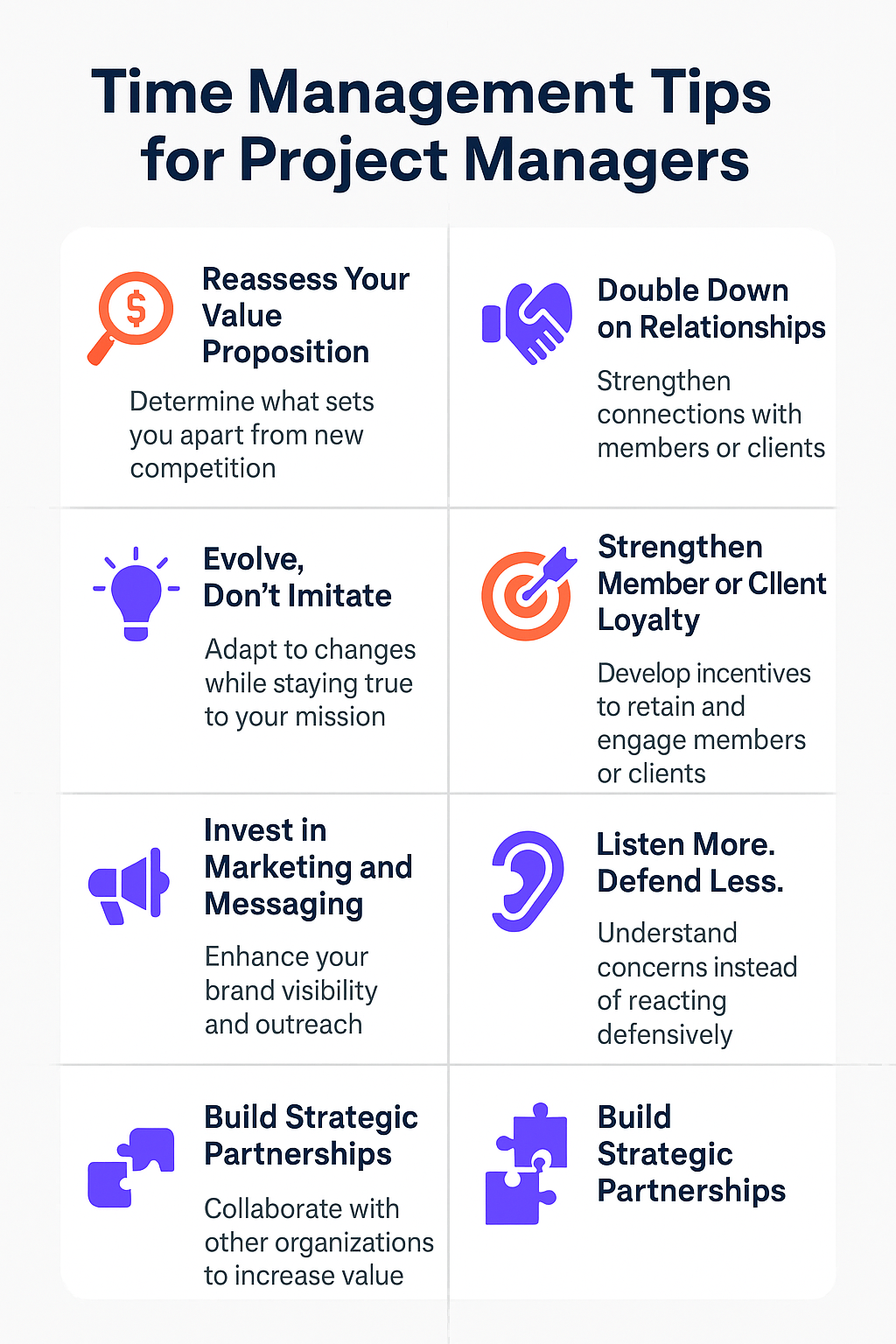Let’s be honest—today’s construction project managers aren’t just running jobs. They’re juggling design changes, managing teams, soothing clients, forecasting delays, reviewing RFIs, dodging supply chain disasters, and somehow still trying to eat lunch without checking their phones.
It’s not just a busy season—it’s a perpetual sprint. And in an industry where “fast-track” has become the default, time is both your most valuable and most abused resource.
Here’s how to reclaim some control, even when the chaos won’t let up.
1. Start with Ruthless Prioritization
The truth? You can’t do everything. So stop pretending you can. The best project managers are not the ones who say yes to it all—they’re the ones who know what to say no to.
Use the Eisenhower Matrix (Urgent vs. Important). Every task you touch should fall into one of four buckets:
- Do now
- Schedule it
- Delegate it
- Delete it
Spoiler: “Reply to every email instantly” is not in the first bucket.
2. Time-Block Like a Boss
You know how construction schedules run on critical path logic? Apply the same mindset to your day. Block off chunks of time for focused work, site visits, team coordination, or owner meetings—and protect those windows like your project depends on it. Because it does.
Pro tip: Put your most demanding or strategic work in your morning block. That’s when your decision-making brain is fresh (and less fried by 47 interruptions).
3. Delegate or Drown
This one’s tough, especially for PMs who like to have their hands on every little thing. But you’ve got to trust your team. If someone else can do the task 80% as well as you, delegate it.
Delegating isn’t dumping. It’s teaching, empowering, and creating room for yourself to focus on what only you can do: solving the big stuff, steering the project, and keeping everyone rowing in the same direction.
4. Stop Scheduling Yourself to Death
If your calendar looks like a game of Tetris and you’ve had 15-minute meetings back-to-back since 7:00 a.m., you’re not being productive—you’re surviving.
Here’s a bold move: schedule open space into your calendar every day. No meetings, no calls. Just margin for thinking, walking the site, catching up, or handling the fire drill of the day. (Because there will be one.)
5. Manage the Team So You’re Not Managing Chaos
Whether you’re managing internal teams, subcontractors, consultants, or clients’ teams—alignment is everything. Lack of communication and unclear expectations are time vampires.
Set up consistent weekly touchpoints (15–30 minutes tops) with clear agendas. Establish workflows. Use shared tools like Procore, Buildertrend, Monday.com, or Smartsheet to avoid version control nightmares and repetitive updates.
And remember: if you’re the only one chasing deadlines, your process is broken.
6. Use the 3-Level Communication Rule
Not all communication is created equal. And not every update deserves a meeting. Try this:
- Level 1: Email or project software update
- Level 2: Quick call or text (clarify, confirm, redirect)
- Level 3: Actual meeting (only when truly needed)
This saves your time and everyone else’s—plus it keeps those 2-hour meetings from becoming group therapy sessions.
7. Say No Without Apologizing
This one’s for the chronic overcommitters: Stop saying yes to every client ask, internal request, or “just one more thing.” You’re not a superhero. You’re a high-functioning PM, and that requires boundaries.
Try:
“That’s a great idea—let’s put that into the next phase.”
“To fit that in, I’ll need to move something else. Want to help prioritize?”
“I’d love to, but my time is already committed to critical path items.”
Boom. Respectful, clear, and no one’s feelings hurt.
8. Track Your Time (Even Just for a Week)
Want to know where your time really goes? Track it. One week. That’s it. You’ll quickly spot what’s sucking up your hours—endless status updates, unproductive meetings, fixing other people’s work—and you’ll see exactly what to change.
Final Thought:
You can’t manage time. You can only manage how you spend it.
And in the design and construction world, where every minute has a dollar value, the best PMs aren’t just organized—they’re intentional. They plan for chaos, protect their focus, and lead their teams with clarity and structure.
So don’t wait for the workload to lighten. It won’t.
Instead, take control of what you can—and build a smarter schedule that works as hard as you do.






